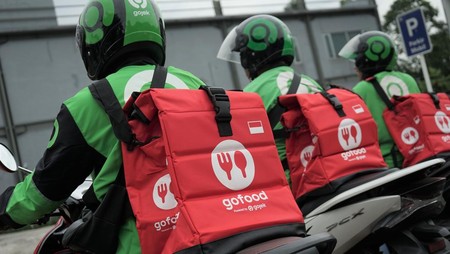Contributing editor, Peter Backman is a long-term foodservice sector guru and founder of theDelivery.World, a platform that connects the delivery sector and makes sense of the myriad changes and challenges that affect the sector across the globe.
While DoorDash and Uber Eats dominate headlines in the US powerful champions are reshaping the restaurant delivery landscape in other countries, often outmaneuvering US giants in their home territories. These players have built formidable operations by deeply understanding local markets, cultural nuances, and consumer preferences.
In India, Zomato and Swiggy demonstrate how regional champions can thrive through local expertise. Zomato leads the market with 28.5 percent growth in the last quarter, significantly outpacing global platforms. Their success stems from understanding India’s unique challenges, including complex urban geographies and varying consumer preferences. Swiggy, meanwhile, has leveraged its IPO to strengthen its position, expanding beyond restaurant delivery into quick commerce and building a broader ecosystem tailored to Indian consumers.
Latin America presents another compelling example with iFood’s dominance in Brazil. Despite competition from global players, iFood maintains market leadership through deep integration with local restaurants and a sophisticated logistics network adapted to Brazilian cities’ unique layouts. Similarly, Rappi has built a strong presence across multiple Latin American countries by evolving into a super-app that combines food delivery with financial services.
In Southeast Asia, regional players like Grab and Gojek have successfully defended their territories against global competitors. Through their respective GrabFood and GoFood services, these companies leverage their understanding of complex local markets, from Jakarta’s congested streets to Singapore’s high-rise complexes. Their success lies in combining food delivery with other services like ride-hailing and digital payments.
The Middle East showcases how regional specialization can drive profitability. Talabat, currently being partially spun off from Delivery Hero, demonstrates the value of regional focus. With 87 percent of its GMV coming from countries in the Gulf, Talabat achieved $321 million in Adjusted EBITDA in 2023, proving that regional concentration can lead to better financial performance.
In China, Meituan and Ele.me dominate through deep local market penetration and integration with broader tech ecosystems. Meituan, in particular, has expanded well beyond food delivery into hotel bookings, movie tickets, and other lifestyle services, creating a comprehensive platform that global players would find difficult to replicate.
These regional champions share several key success factors: building deep relationships with local restaurants, customizing technology for local preferences, excelling at regulatory navigation, reflecting cultural nuances in their operations, and developing logistics networks optimized for specific urban environments.
Their success demonstrates that global expansion requires more than just technological superiority or financial resources. It highlights the importance of understanding local market dynamics and being willing to adapt business models accordingly.
The rise of these regional champions also explains why platforms have struggled to achieve worldwide dominance. Even well-funded international players often find themselves at a disadvantage against local competitors who better understand and serve their markets.
But perhaps the most important angle for US platforms is that these considerations are as true for them as they are for any platform, in any country. In other words, US platforms may be strong at home but they are no different from a dozen or more champions around the world who are strong in their own regions.


